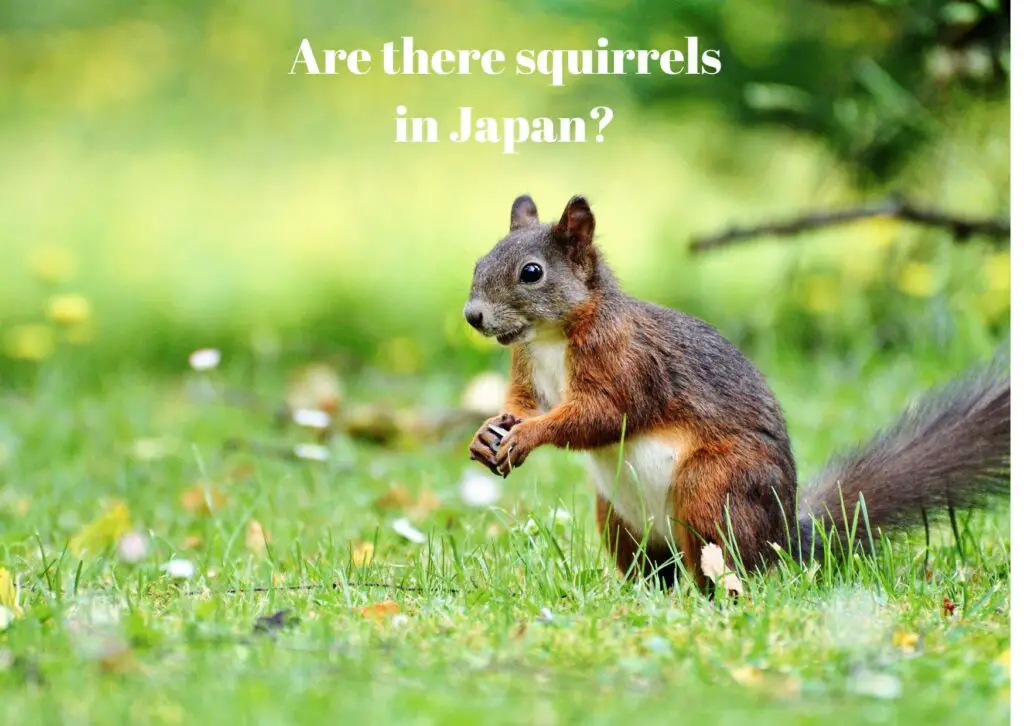
Squirrels are the most diverse species in the entire world. You can find them anywhere in the world except Antarctica! Some jump, others glide. Some are tiny, and others are huge. Some prefer living on the ground while others like up in the trees. The cutest thing about these furry little fellows is that their front two teeth never stop growing! That’s why you can always see them holding a nut in their hands and munching on it! Anyhow, you need to brace yourself since this article is not only going to give you information about squirrels living in Japan but a lot more! So what are you waiting for? Keep reading the article below.
Are there squirrels in Japan?
Squirrels, your furry friends, are found in all places around the world. From Asia to Africa, you can always see them in different areas. Though with every place, their specie differs. Due to different habitats and temperatures, every place has its specie of squirrels. If you are wondering if Japan has squirrels or not, yes, it has! Japan has its kind of squirrels, which are known as Sciurus Lis. But generally, squirrels in Japan are known as Japanese squirrels. You can easily see them on the islands of Shikoku and Honshu!
The Japanese squirrels differ from their other species due to their distinctive features and habitats. These cute little rodents love trees, so you can always find them running on the trees! Their features are cute, to be honest- furry tails, sharp claws, large ears, and protruding front teeth are probably the best sight to look at! Their fur is of grayish brown color, which turns darker in winters!
Habits of Japanese squirrels:
Japan is a beautiful hub for flora and fauna. You can see a wide range of animals here. Seeing the abundance of these bushy-tailed creatures in Japan isn’t astounding. Though islands of Japan are the actual habitats of Japanese squirrels, you may see these fellows anywhere in the woods. They love living on trees so that you may see them in places with lots of trees.
Japanese squirrels can be found in urban and suburban areas of Japan. They like to roam around in forests where they have enough tree cover. The favorite tree they are usually seen at is a pine tree. If you see pieces of pine spread like a nuisance, I can tell you it’s a squirrel’s act! So if you live in Japan and wish to see a squirrel, visit the islands or woody areas with pine trees, you shall be amazed to see these adorable babies!
What do the furry Japanese squirrels munch on?
Japanese squirrels eat a variety of things. Now you may be wondering that a squirrel only munches on peanuts since that is what we have always seen in the movies, so let me tell you that a squirrel eats a lot more things other than just nuts. Following are the things a Japanese squirrel would love to have a bite of:
- Fruits
- Nuts
- Seeds
- Leaves
- Flower buds
- Flowers
- Plants
- Walnuts
Breeding details of Japanese squirrels?
Every specie of squirrel has its mating patterns. Some mate in colder times of the year, while some mate in moderate temperatures. Japanese squirrels are made in May/June or February/March time of the year. The gestation period is about 40 days, and after that, around two litters of babies are born, each with six squishy furry babies.
Females are solely responsible for the upbringing of children, and males are usually not involved in this matter. The female builds nests or dens in areas where she feels protected. Also, mama squirrels are very possessive and protective regarding their babies. The baby squirrels are entirely dependent on their mother’s milk for two months and become entirely independent to roam and find food for themselves after that.
Are Japanese squirrels endangered?
The Japanese wildlife doesn’t provide an accurate squirrel population, so it remains unknown. According to research, these squirrels are mainly found in Kyushu, Shikoku, and Honshu islands. However, these squirrels have started to disappear in the areas of Honshu, making them one of the endangered species in Japan.
Following are the reasons why Japanese squirrels have become endangered over the period:
- Excessive deforestation:
Japanese squirrels’ primary habitat is trees and woods. They make their nests and dens in the trees. They don’t like living elsewhere since trees are the most secure place to live. With the excessive cutting of the trees by humans for advancements, the population of squirrels has excessively fallen over the period.
- Meal for humans:
Various people in Japan like feeding on squirrels. As shocking as it may sound, these people have lived on different islands in Japan and have been feeding on squirrels ever since.
- Hunted by predators:
Many animals in the wild prey on squirrels. When there were lesser trees, hunting would become easier for predators. The animals that prey on squirrels are foxes, coyotes, crows, eagles, hawks, and sometimes cats. When a squirrel feels insecure or is attacked by other animals, it runs to find a tree or hole where it can escape. Thus, trees for vital for squirrels in the wild.

